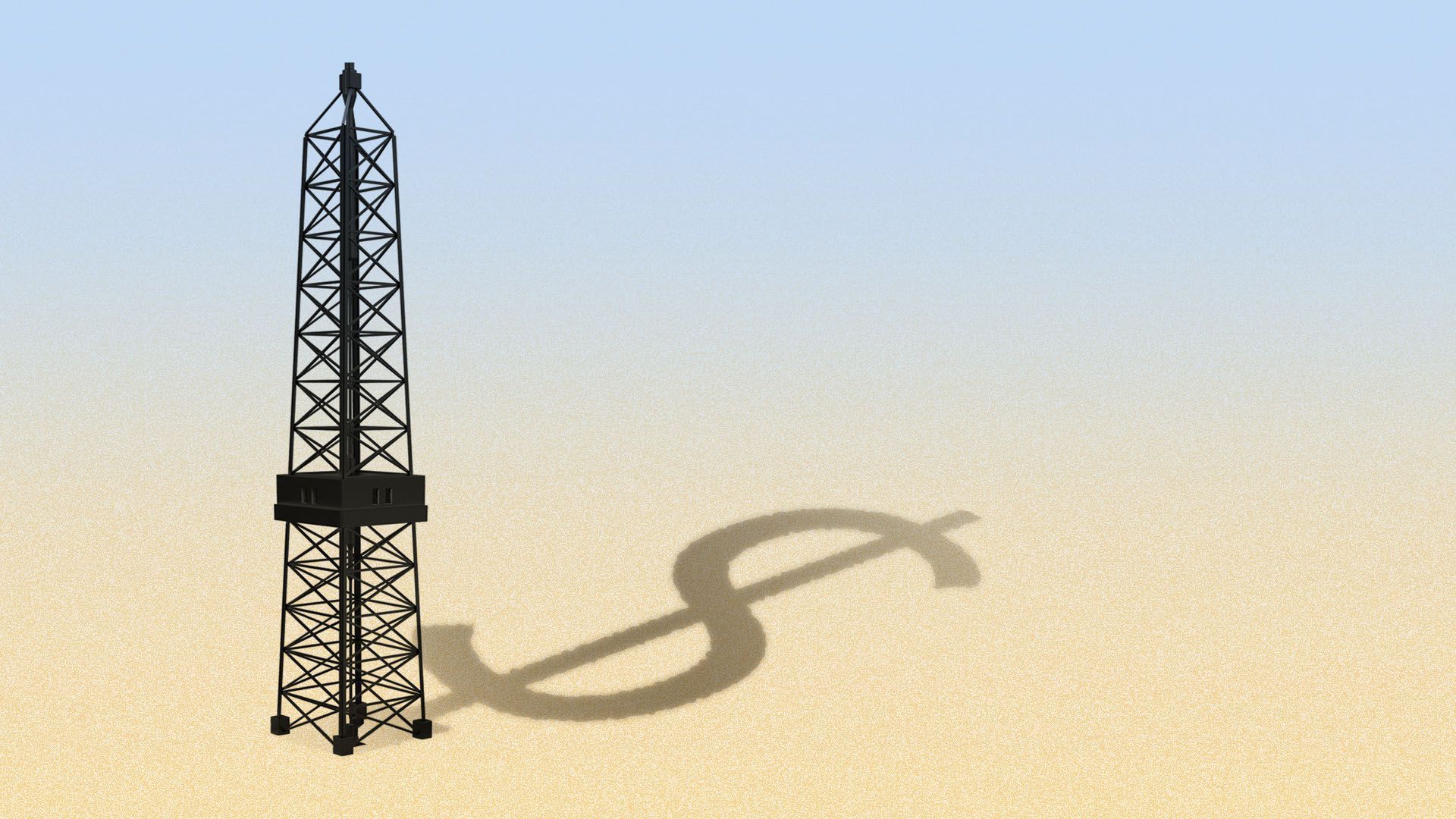Why Big Oil says it opposes special handouts in coronavirus crisis

Illustration: Sarah Grillo/Axios
The American Petroleum Institute wants to avoid political baggage that could come from any special government program helping the beleaguered sector.
What they're saying: "Once you invite the government into these businesses, there are long-term repercussions for that, and I think that has weighed heavily on this industry's mind," said Mike Sommers, API president and CEO.
The big picture: The oil and gas industry could see dozens, maybe hundreds, of bankruptcies in the coming months and years as the sector grapples with pandemic-fueled shutdowns choking oil demand, a recent analysis by consultancy Rystad Energy found.
- Even before the coronavirus crisis, many companies were doing poorly financially.
- Sommers indicated these firms should not get government support.
“We want to make sure if you were solvent going into this crisis and credit-worthy going into this crisis, you can survive this crisis. For some firms, that was not the case. I don’t think we’re interested in programs that would send good money after bad.”— Mike Sommers, API CEO and president
The intrigue: Sommers, who represents the industry's largest trade group with more than 600 members, said broader emergency loan programs Congress has already created to offer a range of troubled companies is sufficient for oil producers too. Most of the sector is opposed to special treatment given the longer term political consequences, Sommers said.
- He shared a comment he said a CEO of one of API's members, a major independent oil and gas company, told him. "You can't ask for capitalism on the way up and then socialism on the way down," Sommers relayed.
- Sommers spoke to Axios as the White House prepared to offer details on a brewing aid plan aimed at smaller and medium-sized companies.
Flashback: Sommers recalled his time working on Capitol Hill during the government's response to the 2008-2009 recession, where a range of companies, including banks and auto makers, received federal loans. He referred specifically to Jamie Dimon, CEO of JP Morgan Chase, which took $25 billion in recovery loans at the time.
- "Washington is littered with people who have taken these kinds of money from the federal government and most of the time they are still paying for that kind of government involvement," Sommers said. "Every time Jamie Dimon has to go to the Hill, he has to answer for that [Troubled Asset Relief Program] money he didn't want to take, that he was asked by the government to take."
But, but, but: Not everyone in the industry agrees with API. API's membership is largest and most diverse but also often dominated by the biggest international producers like Exxon and Shell.
- Lee Fuller, executive vice president of the Independent Petroleum Association of America, which represents smaller and more U.S.-based producers said his group would support a specific program if that's what it would take.
- "We have a lot more companies in our membership that have been facing these struggles than perhaps API does," Fuller said. "We're trying to make sure they're getting a fair shot."
Go deeper: Trump's plans to help the oil industry (Washington Examiner)
